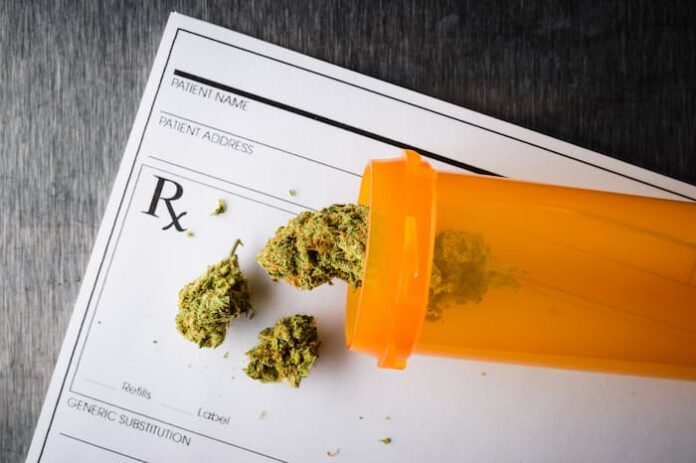Not long ago, I was completing a search for a client, securing a coveted candidate for a critical position. The final step in the hiring process was for the candidate—who had accepted the position and resigned from their current role—to take a routine drug test.
That’s where the process began to unravel. The reason: The candidate used recreational marijuana and was concerned about passing the drug test.
Drug testing in the workplace is nothing new. What has changed is an ever-evolving patchwork of state laws on workplace drug screening that is forcing employers to navigate a complicated legal maze. Myriad complex questions—of who may be tested, when, why, how and for what—have created a tricky minefield for businesses and their HR and recruitment professionals.
States all over the map on drug testing in the workplace
A recent surge in state laws legalizing marijuana use, either medically or recreationally, has contributed to the problem. As of October, the National Association of Criminal Defense Lawyers noted that 31 states and Washington, D.C., had decriminalized simple possession of marijuana; 38 states and Washington, D.C., had legalized medical marijuana; and 22 states and Washington, D.C., had legalized recreational marijuana for adults.
New state laws in California and Washington are expected to change the landscape of how employers may test employees for marijuana even more. Both states now proactively protect employees’ rights to legally use marijuana when not at work.
In Washington, employers cannot make hiring decisions based on the legal use of marijuana off the job. Companies in California cannot discriminate against individuals in employment or termination based on legal marijuana use when not on the clock.
In Georgia, where recreational marijuana is illegal, employers may implement zero-tolerance drug policies on cannabis testing. In New York, where recreational and medical cannabis use is legal, employers cannot test current or prospective employees. In Iowa, workplace drug or alcohol testing is optional for private-sector employers, and development and distribution of written policies is required.
Marijuana is illegal at the federal level, and employers regulated by the U.S. Department of Transportation must follow its mandatory drug and alcohol testing regulations, which supersede all state or local laws.
The states are also all over the map on whether employment may be denied to applicants testing positive for marijuana and whether employees may be terminated for using substances.
About two-thirds of states have medical marijuana laws allowing people with serious medical conditions to use marijuana with a doctor’s authorization. However, that doesn’t mean its use is permitted in the employment context.
Expertise, careful consideration needed
Therein lies the rub, whether you do business in one state or multiple states. Some employers and their HR teams may lack the critical expertise in drug laws of the land and, therefore, could be at risk for costly missteps.
Until a couple of years ago, drug screening was largely handled by HR staff as part of the onboarding process, after recruiters had wrapped up their work. Today, a growing number of job candidates ask during the vetting process whether an employer requires a drug screening for marijuana as a condition of employment. This adds another layer of complexity to the process, especially for candidates applying for positions in states where marijuana use is legal.
A lack of knowledge can unravel the recruitment process and lead to otherwise qualified candidates being eliminated or withdrawing from consideration, wasting weeks or months of valuable time and money.
Why drug screen?
The most common reason for drug testing in the workplace is the goal of maintaining a safe, productive work environment that ensures the health and success of your business. Drug or alcohol use can contribute to absenteeism, employee turnover and workplace accidents, and can threaten the wellbeing of co-workers and customers.
Another reason is that employers may qualify for discounts on state workers’ compensation insurance premiums. The state of Georgia, for example, offers a 7.5% reduction to employers requiring workplace testing for drugs and alcohol.
Additionally, drug testing in the workplace can help a business avoid legal liability, for example, if an intoxicated employee harms someone on the job. Workplace drug and alcohol use also may violate OSHA and state occupational safety laws.
Strategies for hiring leaders
Navigating this new environment requires a thoughtful, strategic approach, including these steps:
- Involve your legal counsel and HR team in all considerations.
- Determine what best serves your business or specific business units within your company. What works for a tech company’s office environment may not work for a manufacturing facility, and what works for hiring Baby Boomers and Millennials is different.
- Distinguish between pre-employment drug testing and random drug testing in the workplace, and have clear reasons for doing either. Think about who and why you are testing. Have a good rationale for blanket testing, and enforce it consistently. Know that if your policy is to fire anyone failing a random test, you may lose people with institutional knowledge.
- Examine the laws in every state where you do business. Up-to-date information can be found at the Drug Policy Alliance, Justia, National Drug Screening Inc. and BackgroundChecks.com, to name a few.
- Learn which of your employees are medical marijuana patients and if their usage of cannabis in the workplace is protected by state law.
- Consider the attitude of your workforce when making disciplinary decisions related to drug testing in the workplace. Is it worth losing key team leaders because they smoke pot on their own time?
- Once a comprehensive policy has been adopted, ensure that all employees receive and understand it. Conduct periodic reviews to ensure adherence to current regulations and laws.
No business needs an explosive situation created by ever-changing laws. Wise employers, HR leaders and their recruiting partners will know the facts about drug testing in the workplace and proceed accordingly.



